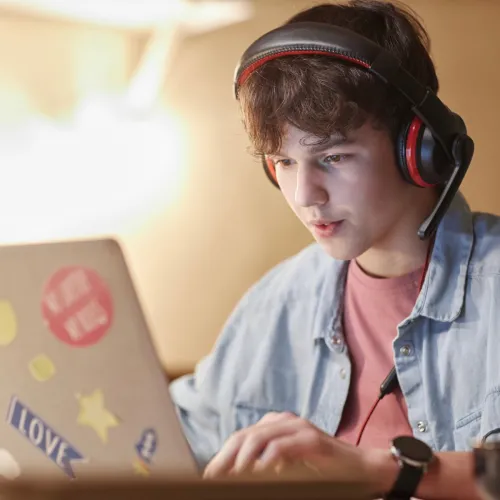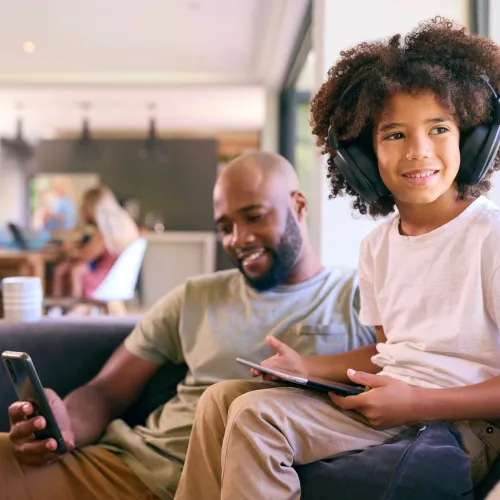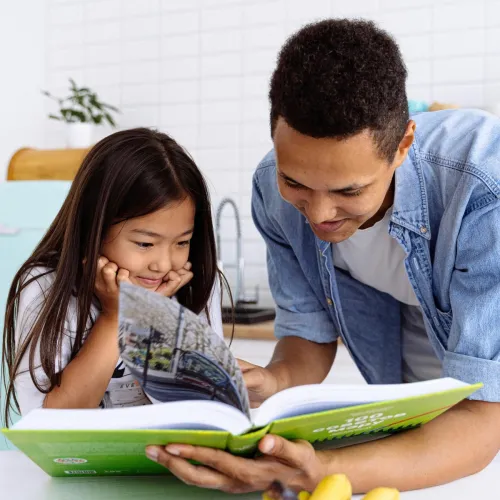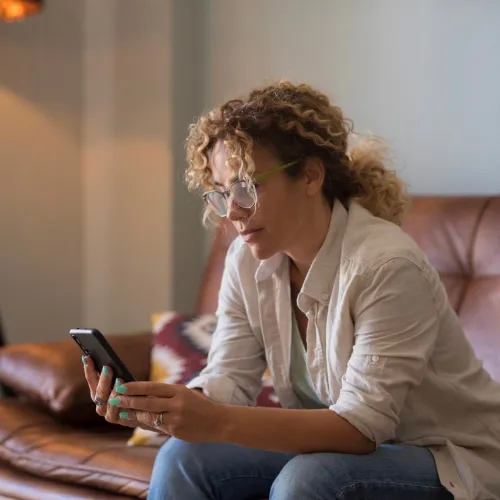Staying Connected to Your Child Through Virtual Visitation
There’s a lot of adjusting to do when co-parenting after a divorce or separation. One of the hardest parts, for both you and your kid, is simply being away from each other when they’re with your co-parent. Virtual visitation can help you stay close when you’re apart, or even help you grow closer.
A video chat can’t fully replace time spent together in person, but it can help you maintain a regular point of connection. Virtual parenting time can even be written into your parenting plan or order, but it doesn’t necessarily have to be. Many parents find ways to touch base with their child virtually on the days they’re not together in person.
OurFamilyWizard, a co-parenting app, is designed for communication between co-parents. But our new feature, Calls, was also designed to connect co-parents and their kids through video or audio calling. Calls are safe, secure, and automatically documented.

When is virtual visitation a good idea?
Virtual visitation is very flexible. Because it’s documented, it’s great for officially scheduled visitation or virtual parenting time. Because it’s simple and convenient, it’s great for casual chats anytime.
For long-distance parenting
If one parent moves away with the child, virtual parenting time can help the other parent stay in contact without excessive traveling. And if the child stays with that parent over the summer, the other parent might enjoy virtual visitation during the summer.
For casual conversations and sharing little moments
Virtual visitation doesn’t have to be serious and official. It can be a casual conversation—maybe you have news to share, or your child lost a tooth or won an award, or maybe you just miss each other. Chat about it live!
For week on, week off schedules
If you use a week on, week off parenting schedule (or another rotation, like a 60/40, 70/30, or 80/20 plan), a midweek virtual visit can help you stay connected during your week off.
When you’re struggling to agree in mediation
If both parents are close to agreeing on a parenting schedule, but there’s an impasse, adding a virtual parenting time hour can help you move forward.
Especially if the parenting time agreement is not 50/50, virtual visitation can help the parent with less parenting time see their kid on a more regular basis.
When there’s a safety issue
If there are any safety concerns—such as a domestic violence situation or a substance abuse problem—virtual visitation may provide a safer way for the child to see that parent. Documentation is important here, too. If the virtual visitation can be documented, it’s a safer and more accountable option. (Sometimes, of course, even virtual parenting time isn’t a safe option.)
For additional safety, the Calls feature on OurFamilyWizard doesn’t require your phone number, which helps prevent cyberstalking and keeps personal information private. Calls also requires consent – if you don’t turn on consent, your co-parent can’t place a call to you.
When you have a progressive parenting plan or you’re building trust
Virtual visitation is often useful when parents are using a progressive parenting time plan or working on rebuilding trust between a parent and child. In these cases, parents often begin with supervised parenting time, which can be a great tool for strengthening the parent-child relationship—but it can also be costly, and it can sometimes be difficult to find open slots at supervised parenting time facilities. Virtual parenting time is a helpful supplement that is less expensive and more flexible.
Virtual visitation can also be used as an intermediate step when a parent is working towards unsupervised, in-person parenting time. OurFamilyWizard’s documentation features can help the other parent, and even the court, feel more comfortable with this arrangement.

Why is documentation important for virtual parenting time?
When considering virtual visitation, people often worry that it won’t actually happen, or that their co-parent will be late or will place a phone call instead of video calling. That’s why documentation is so important. In OurFamilyWizard, Calls documents the date, when each call starts and ends, and when anyone turns their camera or mic off or on.
If one parent is awarded virtual parenting time, but the other parent doesn’t comply—for example, if they don’t answer their co-parent’s call at the designated time—then that parent may be held in contempt by the court.
With Calls, there’s clear accountability. That makes it easier for the parents to agree on making it a part of the plan. This also helps the judge or mediator feel more confident and comfortable in the opportunity to reach a resolution. This additional layer of security and accountability can also help you avoid additional litigation.
Virtual visitation helps you stay connected when you’re apart
Virtual visitation can help your child stay connected to both you and their other parent, even when you’re apart. Whether you want a quick chat to share something fun or you’re rebuilding a relationship, seeing each other’s faces and hearing each other’s voices creates a sense of connection in a special way.








